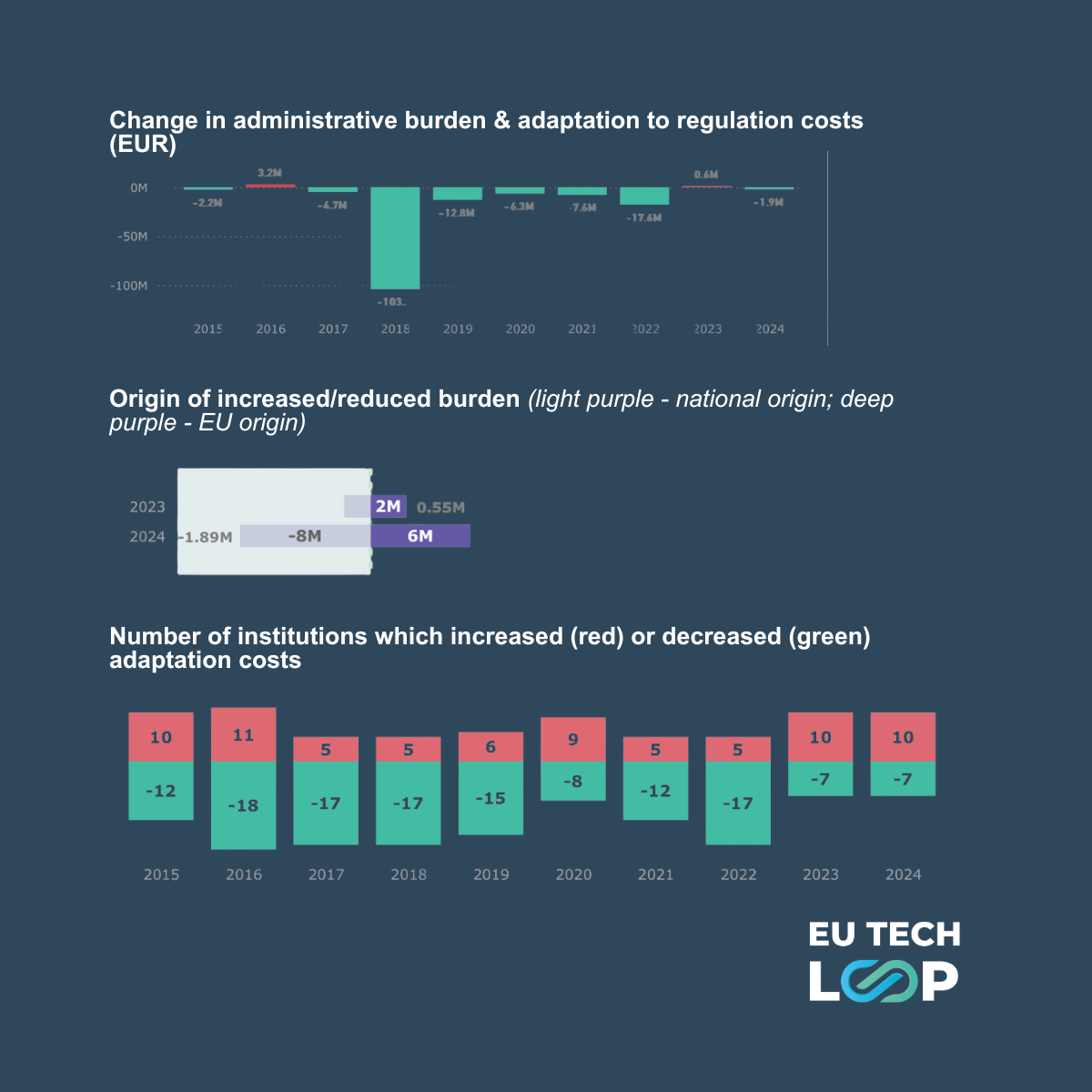Cutting red tape: no time for incrementalism. Suggestions for EU policy makers.
With the release of the Competitiveness Compass this week, the European Commission has once again committed to cutting red tape. The ambition is commendable, but for real impact, the EU needs to avoid usual siloed, incremental actions and draw from best practices from across Europe.

With the release of the Competitiveness Compass last week, the European Commission has once again committed to cutting red tape. The Commission plans to reveal more details about its plans this week.
The ambition is commendable, but for real impact, the EU needs to avoid usual siloed, incremental actions and draw from best practices from across Europe.
The EU must return to its roots by respecting impact assessments. It should measure both reduced and added administrative burden, especially with 38 (!) flagship initiatives planned under the Competitiveness Compass for 2025-2026. Progress checks should be more frequent than once a year, with shared accountability beyond just the Commissioner. Lastly, the concept of Omnibus should be extended to digital, banking & fintech, pharma & biotech, agriculture, and other sectors in which Europe can still be competitive.
#1 Why and when did we stop treating impact assessments seriously?
This College of Commissioners isn’t the first to promise better regulation and reduction in administrative burden - plenty of smart and well-intentioned people have been working on similar matters in the past.
In theory, impact assessments (along with a one-in-one-out principle) should be the Northern Star guiding EU policymakers, both before a law is passed (ex-ante) and after it has been in place for some time (ex-post).
Is this rule truly being followed? Insiders comment that the European Commission has bypassed impact assessments in the past, citing complexity and time constraints for certain legislative proposals.
European citizens and their representatives - whether in Brussels or at home - should know exactly what they’re voting for and what's the future impact. A strong ex-post assessment must drive immediate fixes when policies fail.
Some worry impact assessments slow down policymaking, but maybe that’s a good thing. Thoughtful analysis prevents rash decisions and gives businesses and public administrations much needed room to breathe.
#2 We have to measure reduced administrative burden, along added administrative burden
The EU plans to cut the administrative burden by 25-35% by 2030 - just 5-7% per year. But is that enough to boost the EU economy? And will the KPIs account for both reduced and added burden?
Something is better than nothing, but if we’re serious about improving the business environment, the EU should make sure to measure not only the burden it reduces but also the burden it adds simultaneously - and ensure the net impact is reflected in annual progress reports.
A similar system is already in place in Lithuania (See picture below), where the Ministry of Economy and Innovation runs a dashboard that tracks administrative burden and compliance costs for business (both added and reduced) across different institutions. It even distinguishes between burdens originating from EU regulations and those from national laws.
Institutions don’t particularly love publicly displaying their results - but that’s exactly the kind of accountability the EU needs to follow.

#3 We need to track our progress more than 1-2 times a year; accountability is key
The European Commission plans to publish administrative burden reduction results once a year in its annual report. That’s far too infrequent for real impact and real motivation.
To motivate institutions and gain public support, the EU should consider introducing a real-time progress dashboard - a transparent, public platform where different directorates and institutions can track and showcase their results.
Visibility creates accountability, and that’s exactly what’s missing from the system today. It’s important to ensure that reducing administrative burden doesn’t become just an end-of-the-year activity.
#4 Business and consumers must prepare well for ‘Reality Check’ meetings and collaborate together
The European Commission has committed to holding Reality Check meetings twice a year with ‘selected stakeholders’ to assess whether simplification and administrative burden reduction efforts are on track. We can only hope Draghi’s mistake not to engage with the Central and Eastern European companies and associations will not be repeated under Valdis Dombrovskis’ leadership.
This means business representatives need to step up the game, come prepared with concrete, well-reasoned proposals, and ensure their ideas are not just shared with the Commission and communicated publicly.
#5 We need Omnibus for all innovative business sectors
Last but not least - Omnibus package. The Commission comments:
“The first Omnibus will, among others, cover a far-reaching simplification in the fields of sustainable finance reporting, sustainability due diligence and taxonomy. In line with the objectives of the sustainable finance framework to mobilise investment in the clean transition, the Commission will ensure better alignment of the requirements with the needs of investors, proportionate timelines, financial metrics that do not discourage investments in smaller companies in transition, and obligations proportionate to the scale of activities of different companies. It will notably address the trickle-down effect to prevent smaller companies along the supply chains from being subjected in practice to excessive reporting requests that were never intended by the legislators.”
MEP Aura Salla was right to point out that while Omnibus initiatives are a good tool for identifying real issues in cutting administrative burden, but we urgently need an Omnibus for the digital and telecom sectors.
We’d recommend taking it even further. The EU should also focus on banking and fintech, agriculture, pharma, and biotech - all sectors where Europe still has the potential to scale but is often held back by excessive red tape.

